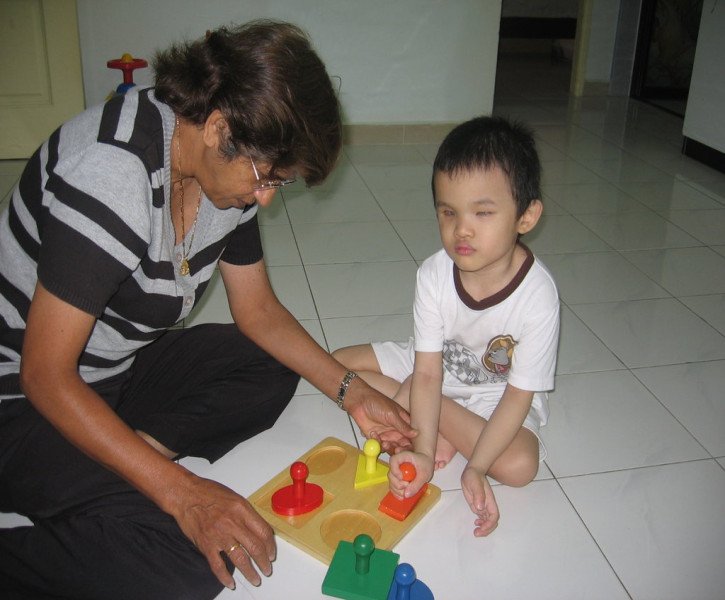


ChallengeAbsence or lack of vision in children with visual impairment affects their learning of skills as they are not able to see to imitate like other children. Concepts need to be explained carefully to the children as the sense of touch which is the usual substitute for the sense of vision is inadequate & inefficient compared to vision which is all encompassing. If early intervention is not carried out as soon as the diagnosis of the visual impairment, then the child is at a high risk developmentallySolutionFamilies will learn right from the beginning what a visually impaired or blind child goes through and they can learn how to cope with things better. Babies and young children with visual impairment, both totally blind and low vision children who face considerable risk developmentally, are given help and support in learning skills, thus helping them to develop in the areas of psycho motor, cognitive and social to the most optimum level possible. Support & counselling are extended to parents too.Long-Term ImpactBy training the child to be independent, we hope to enable the children to be a unifying factor in their families. With proper training and support from their families and SNH, the children will be able to integrate into their families and communities and contribute positively. They will lead more fulfilling and independent lives with their mainstream peers. For the past 5 years we have served a total of 57 children and their families. For 2012, there are 31 children actively receiving training.
0 comments
No comment found